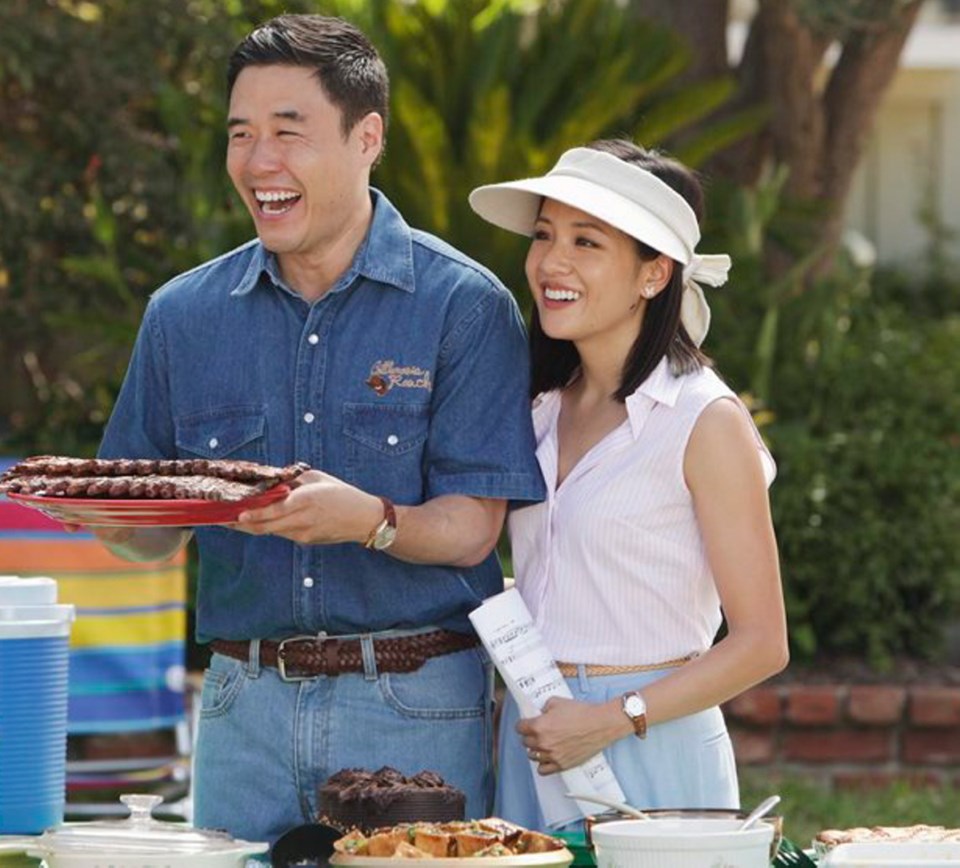NEW YORK — Diversity on TV takes a step forward with ABC’s Fresh Off the Boat, which boosts Asians’ scant presence in prime time with a sitcom about an Asian-American family pursuing the American dream while holding onto their own ethnicity.
It premières tonight at 8:30.
But, first, a couple of caveats:
Firstly, the title overstates the premise. Yes, Louis Huang and his family (wife Jessica and their three sons) have moved from Washington, D.C.’s Chinatown to Orlando, where Louis, “full of big plans,” has opened a new restaurant. But the title suggests refugees paralyzed by culture shock. Most of the show’s humour comes, instead, from the sometimes perplexed, sometimes delighted, reactions of its strangers-in-a-strange land to the quirks of Orlando and suburbia in general.
The format of Fresh is a bit less than fresh. The show takes place in 1995 and is narrated by the adult version of the oldest son, 11-year-old Eddie. Shades of Everybody Hates Chris, another single-camera comedy whose narrator, Chris Rock, told of his 1980s boyhood in an African-American community, and ABC’s current The Goldbergs, whose all-grown-up Adam Goldberg narrates tales of his 1980s boyhood in a Jewish family.
“This is the story of my family,” begins the offscreen, real-life Eddie Huang (on whose memoir the series is based), and you could be forgiven for emitting a weary sigh.
But here’s the good news: This is a funny show with likable characters portrayed by a great cast, all of which gives this Boat sufficient comic buoyancy.
As Louis, Randall Park radiates charm and optimism, even as his counterintuitively themed restaurant — Cattleman’s Ranch Steakhouse — is struggling for life.
“I need to hire a white host,” he reasons. “Instead of people coming in and seeing a Chinese face and saying, ‘Huh? I thought this was an Old West steakhouse,’ they see a white face and say, ‘Ahhh! Hello, white friend! I am comfortable.’ ”
Constance Wu plays his supportive but no-nonsense wife, who is full of understandable misgivings about her new home.
For one thing, she misses the boisterous Chinatown marketplace: “This is not how I like to shop,” she laments on visiting a modern grocery. “This place looks like a hospital.”
And when young Eddie brings home straight A’s, his somewhat tigerish mom is far from satisfied. She complains to the school’s principal that Eddie’s classes are too easy.
As Eddie, newcomer Hudson Yang is adorable, as are Forrest Wheeler and Ian Chen as his younger brothers.
And comedian Paul Scheer is hilarious as Mitch, the restaurant’s eager-beaver “white host.”
A sitcom is typically held to no higher standard than to keep its audience amused. But hopes for Boat are inevitably higher (as are its potential rewards): to help normalize the presence of Asians on TV and help declare their place in the American mainstream.
Yes, the show comes with a message, expressed by narrator Huang: “You don’t have to pretend to be someone else in order to belong.”
In the process, it also happens to be funny.



